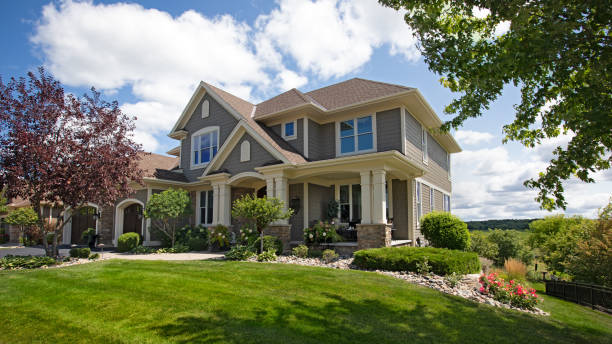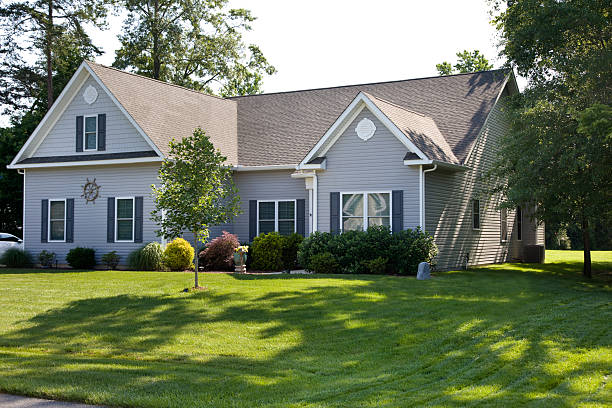Best Roofing Materials for Allentown’s Fall & Winter Conditions (2025 Guide)
- sam86878
- Sep 23, 2025
- 4 min read
Allentown homes run the gamut—from brick rowhomes and Capes to steep Victorians and 60s ranches. Our climate brings freeze–thaw cycles, nor’easter winds, heavy rain, and shady tree lines that can grow moss and feed ice dams. Here’s a clear, homeowner-first guide to the materials that perform best here—and when each one makes sense.

The 30-second cheat sheet
Most homes: Architectural asphalt shingles = best value + strong winter performance.
Longest life & snow-shedding: Standing seam metal (add snow guards over walkways/driveways).
Historic look, lighter weight: Synthetic slate/shake (polymer/composite).
True legacy roofs: Natural slate (requires beefier framing & specialist installers).
Porches/low-slope add-ons: EPDM or TPO single-ply membranes.
Less common here: Cedar shakes (gorgeous but high maintenance in our wet/cold swings).
Architectural asphalt shingles (the Allentown workhorse)
Why they fit here:
Excellent cost-to-performance ratio.
Designed to self-seal in fall temps, so you head into winter buttoned up.
Readily integrates with ice & water shield, synthetic underlayment, and balanced ridge/soffit ventilation—the real ice-dam killers.
Pros
Strong wind ratings and algae-resistant options for shady streets.
Wide color library for HOAs and historic aesthetics.
Straightforward repairs; parts and crews are widely available.
Cons
Lifespan shorter than metal or slate.
Poor attic ventilation shortens shingle life—fix the system, not just the surface.
Best for: Most Lehigh Valley homes wanting reliable winter performance without premium cost.

Standing seam metal (premium longevity & winter shed)
Why it fits here:
Panels lock together and shed snow cleanly; great for steep slopes and open exposures.
Lightweight versus slate and highly durable.
Pros
40–50+ year life with minimal upkeep.
Excellent wind resistance; modern assemblies are quieter than people think.
Cool-weather installs are doable with experienced crews.
Cons
Higher upfront investment.
Plan for snow guards above entryways, decks, and driveways so sliding snow doesn’t create hazards.
Complex flashing details demand a specialty crew.
Best for: Owners prioritizing long service life, clean lines, and low maintenance.
Synthetic (composite) slate or shake (historic look, modern weight)
Why it fits here:
Mimics slate/cedar aesthetics but is lighter and typically more impact-resistant.
Friendlier to older framing than real slate.
Pros
Beautiful profiles with consistent color/texture.
Lighter weight; many systems install over standard decking.
Often better hail/impact performance than natural stone/wood.
Cons
Quality varies by brand; stick with proven systems and certified installers.
Price sits between asphalt and premium metal/natural slate.
Best for: Historic-district curb appeal without structural upgrades.
Natural slate (century-class roofs)
Why it fits here:
If framing is adequate, slate delivers 75–100+ years and classic Allentown charm.
Pros
Unmatched longevity and fire resistance.
Distinctive, premium look that suits older neighborhoods.
Cons
Heaviest option; may require structural work.
Highest material and labor cost; repairs require slate-savvy technicians.
Not every roof geometry is slate-friendly.
Best for: Signature projects and historic homes with the budget (and framing) to match.
EPDM/TPO for low-slope porch and addition roofs
Many Allentown homes have a low-slope section over a porch, addition, or bay. Shingles aren’t the right choice here.
EPDM (rubber)
Proven, flexible, great around penetrations.
Dark surface absorbs heat (fine here, but consider snowmelt paths).
TPO (white single-ply)
Reflective and seams are heat-welded.
Prefers clean, well-prepped substrates.
Key detail: Tie the low-slope membrane into adjacent steep-slope flashing (walls/valleys) correctly. Many “mystery leaks” start at this transition.
Cedar shakes (beautiful, but think twice here)
Pros
Warm, textured look; breathes well.
Cons
Higher upkeep in our wet/cold cycles; prone to moss and fungal growth under trees.
Fire and insurance considerations; fastening and ventilation details are critical.
Usually not the best total-cost choice in Allentown’s climate.
Best for: Specific architectural goals when the owner is committed to maintenance.

The stuff that matters no matter what you choose
Ice & water shield at eaves, valleys, and critical details (plus around chimneys/skylights).
Synthetic underlayment to keep the deck dry and stable.
Balanced ventilation (ridge exhaust + soffit intake). This curbs moisture, controls attic temps, and kills ice-dam risk.
Flashing, flashing, flashing. Brick chimneys and roof-to-wall joints are Allentown’s #1 leak source. Reset them properly during any new roof.
“What’s right for my house?” (quick scenarios)
Budget-smart upgrade before winter: Architectural asphalt with algae-resist + full ice-dam package.
Tree-shaded street with moss history: Architectural asphalt + zinc/copper strip near ridge + airflow tune-up.
Windy, open lot & long-term hold: Standing seam metal with snow guards over entrances.
Historic curb appeal without weight: Synthetic slate/shake on standard framing.
Porch or flat addition leaking every spring: EPDM/TPO, properly tied into adjacent shingles and walls.
FAQs
Can I mix materials (e.g., metal porch roof + asphalt main roof)?Yes—very common. Just make sure the transition flashings are designed as a system.
Will a new roof stop ice dams? A new surface helps, but the win comes from ventilation + eave protection + attic air-sealing. We address all three in our scope.
Do skylights have to be replaced during a re-roof? Not always, but older units are best replaced when the roof is open. It’s cheaper and more reliable than re-flashing a failing skylight.
The bottom line
Pick the material that fits your roof geometry, budget, and how long you plan to stay—then make sure the underlayments, ventilation, and flashing are dialed. That’s what gets you through Allentown winters leak-free.
Need help choosing the right system for your home?
Call 610-587-2709 for a same-week roof/attic assessment in Allentown, Whitehall, Emmaus, Macungie, and nearby. We’ll show photos, explain options, and give you a clean, line-item plan.
P.S. Keep that roof performing: we also offer gutter cleaning and soft/pressure washing as recommended maintenance to prevent overflows and algae growth.



